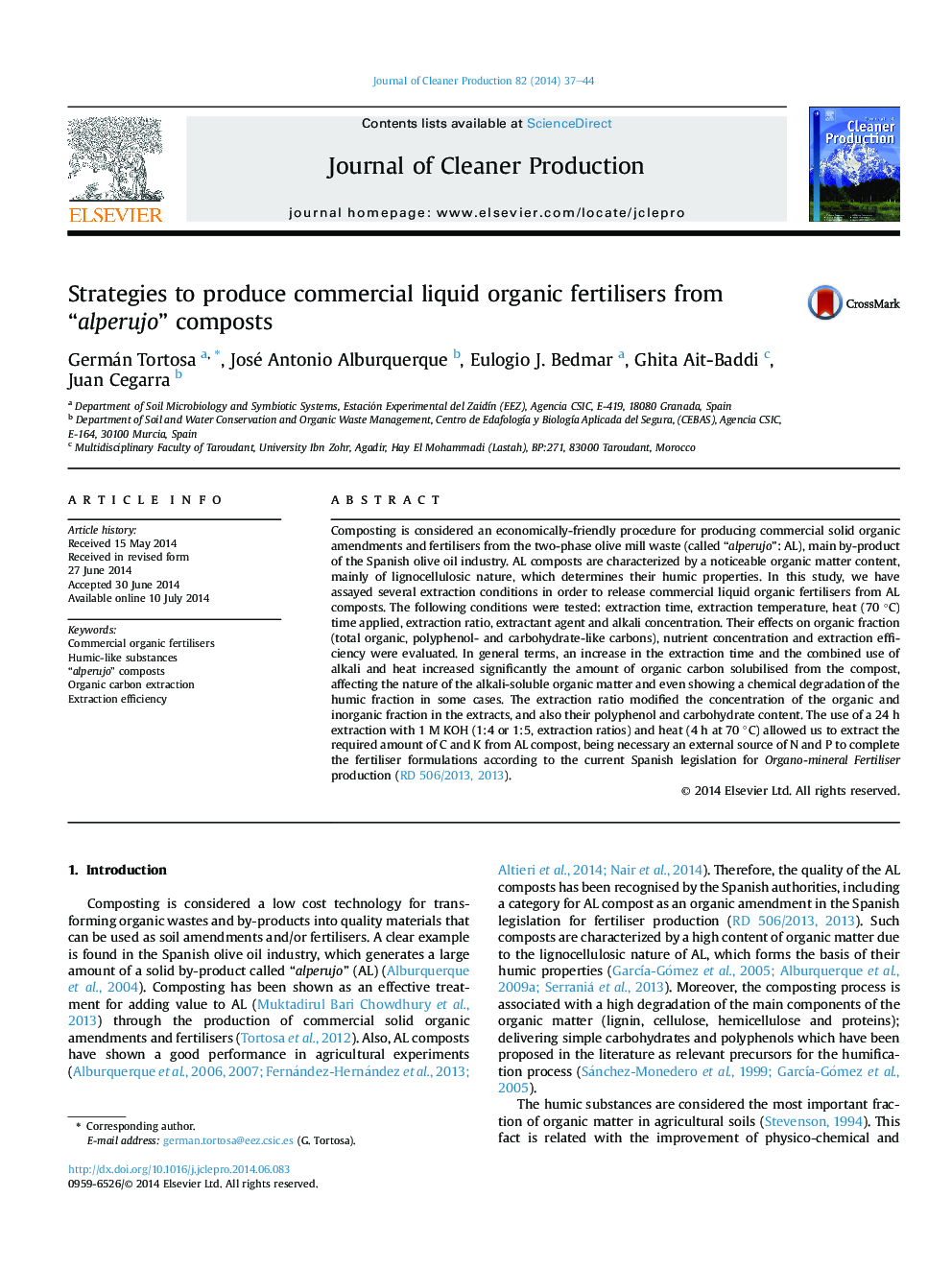| Article ID | Journal | Published Year | Pages | File Type |
|---|---|---|---|---|
| 8105687 | Journal of Cleaner Production | 2014 | 8 Pages |
Abstract
Composting is considered an economically-friendly procedure for producing commercial solid organic amendments and fertilisers from the two-phase olive mill waste (called “alperujo”: AL), main by-product of the Spanish olive oil industry. AL composts are characterized by a noticeable organic matter content, mainly of lignocellulosic nature, which determines their humic properties. In this study, we have assayed several extraction conditions in order to release commercial liquid organic fertilisers from AL composts. The following conditions were tested: extraction time, extraction temperature, heat (70 °C) time applied, extraction ratio, extractant agent and alkali concentration. Their effects on organic fraction (total organic, polyphenol- and carbohydrate-like carbons), nutrient concentration and extraction efficiency were evaluated. In general terms, an increase in the extraction time and the combined use of alkali and heat increased significantly the amount of organic carbon solubilised from the compost, affecting the nature of the alkali-soluble organic matter and even showing a chemical degradation of the humic fraction in some cases. The extraction ratio modified the concentration of the organic and inorganic fraction in the extracts, and also their polyphenol and carbohydrate content. The use of a 24 h extraction with 1 M KOH (1:4 or 1:5, extraction ratios) and heat (4 h at 70 °C) allowed us to extract the required amount of C and K from AL compost, being necessary an external source of N and P to complete the fertiliser formulations according to the current Spanish legislation for Organo-mineral Fertiliser production (RD 506/2013, 2013).
Related Topics
Physical Sciences and Engineering
Energy
Renewable Energy, Sustainability and the Environment
Authors
Germán Tortosa, José Antonio Alburquerque, Eulogio J. Bedmar, Ghita Ait-Baddi, Juan Cegarra,
